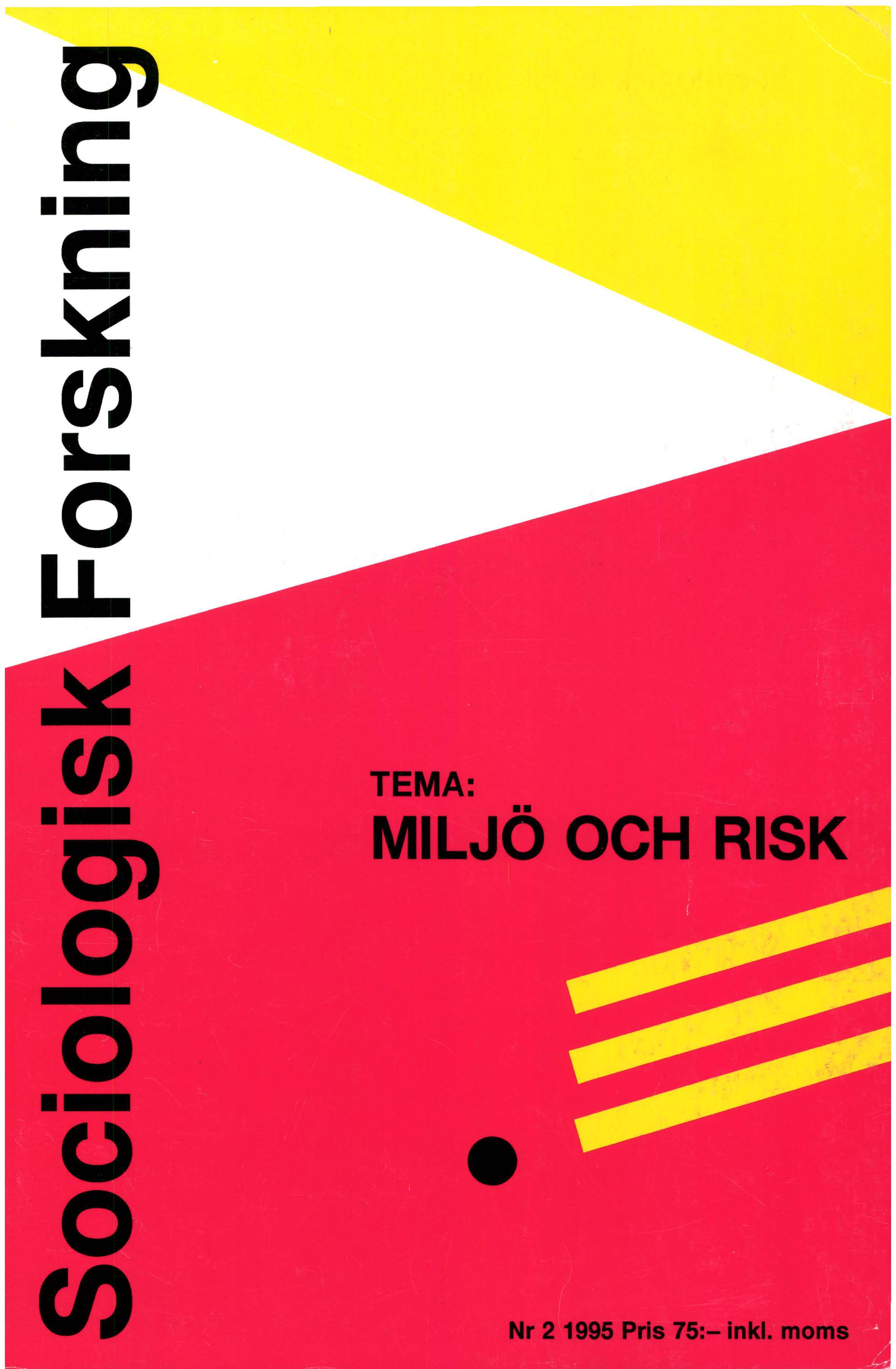Risk och kärnavfall - en studie av det moderna samhällets experter
DOI:
https://doi.org/10.37062/sf.32.18586Abstract
Risk and nuclear waste - a study of the experts in modern society
Modem societies are characterized by their extensive expert systems, which penetrate all aspects of social life. The point of departure in this article is Anthony Giddens’ theory of expert systems. The theory is criticized and said to be both wide and vague, and depend too much on the notion of trust. It is in the article argued that there are life worlds outside the expert systems, with their own rationalities, which possibly can work as counter forces and sometimes also are able to change the expert systems. Giddens’ theory, based on the notions of trust and weak inductive knowledge, ignores the independent cognitive capacities among the laymen. Supplementing Giddens’ theory with some results from the sociology of science it is argued that both the experts’ and the laymen’s relations to the expert systems should be understood as alternating between trust and a cognitive attitude. The theory of expert systems is illustrated by the history of nuclear waste management in Sweden, which is an activity highly dependent on trust and legitimacy among the general public. The opposition to nuclear waste among lay persons during the last decades have in some respect changed the expert systems involved.
Downloads
Publicerad
Referera så här
Nummer
Sektion
Licens
Allt material i Sociologisk Forskning publiceras med omedelbar öppen tillgång (open access), under Creative Commons-licensen CC BY-NC-ND 4.0.
Allt innehåll i tidskriften är fritt tillgängligt utan kostnad och får för icke-kommersiella syften fritt läsas, laddas ned, kopieras, delas, skrivas ut och länkas. Innehållet får dock inte ändras. När innehållet används måste författare och källa anges. Upphovsrätten till innehållet tillhör respektive författare. Inga publiceringsavgifter tas ut.





